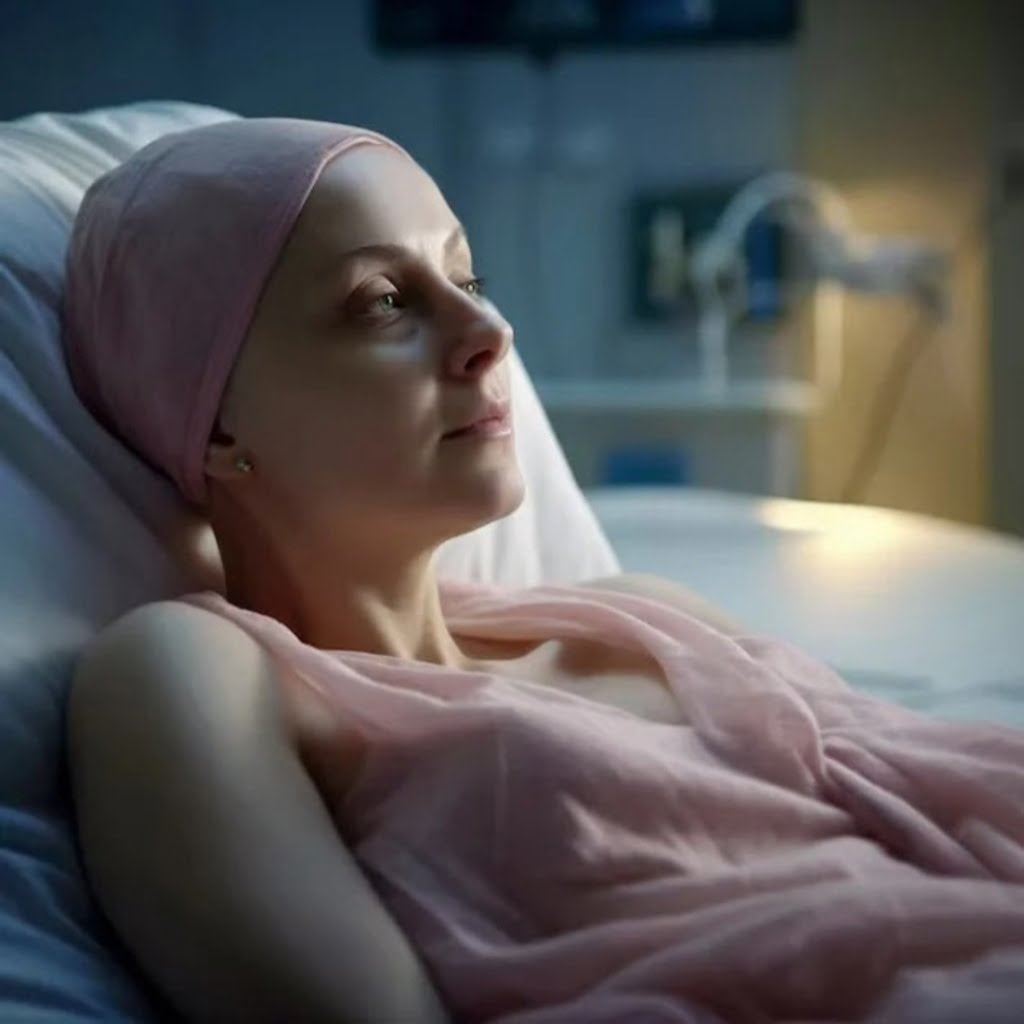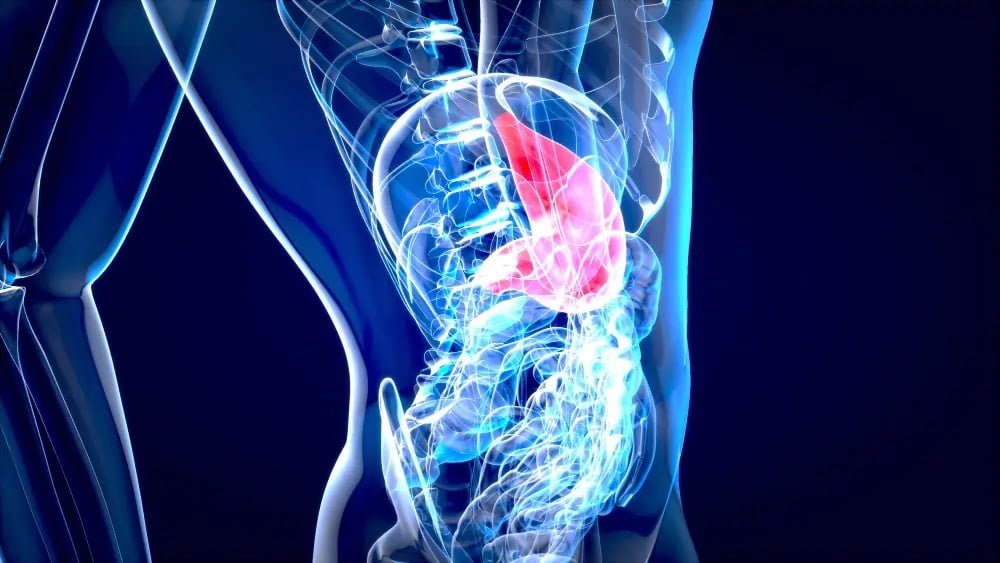
Introduction
Gastrointestinal cancer is a term that encompasses various types of cancers that affect the digestive system, such as the colon, stomach, esophagus, pancreas, and liver. According to the World Health Organization, gastrointestinal cancer is the second most common cause of cancer-related deaths worldwide, accounting for about 9.5 million deaths in 2023. Despite advances in surgery, chemotherapy, and radiation therapy, many patients with gastrointestinal cancer face a poor prognosis, especially if the cancer is advanced or metastatic. However, there is a new hope for patients with gastrointestinal cancer: immunotherapy. Immunotherapy is a form of cancer treatment that uses the body’s own immune system to fight cancer cells. Unlike conventional treatments that directly target cancer cells, immunotherapy removes the “brakes” that cancer cells use to evade immune attack, allowing immune cells to recognize and destroy cancer cells effectively. Immunotherapy has shown remarkable results in various types of cancers, such as melanoma, lung cancer, and kidney cancer, and is now making its way into gastrointestinal oncology. In this article, we will explore how immunotherapy works, what are the different types of immunotherapy available for gastrointestinal cancer, and what are the benefits and challenges of this breakthrough treatment.
How does immunotherapy work?
The immune system is a complex network of cells, tissues, and organs that protect the body from foreign invaders, such as bacteria, viruses, and parasites. The immune system also can detect and eliminate abnormal cells, such as cancer cells, that arise within the body. However, cancer cells have developed various strategies to evade the immune system, such as hiding their antigens, producing immunosuppressive molecules, or activating immune checkpoints. Immune
checkpoints are proteins that regulate the activity of immune cells, such as T cells, that are responsible for killing cancer cells. Immune checkpoints act as “switches” that can turn on or off the immune response, depending on the
signals they receive. Normally, immune checkpoints help maintain the balance between immunity and tolerance, preventing the immune system from attacking healthy cells or causing autoimmune diseases. However, cancer cells can exploit immune checkpoints to escape immune surveillance, by sending inhibitory signals that deactivate T cells.
Immunotherapy aims to overcome this immune evasion by blocking or stimulating immune checkpoints, enhancing the immune response against cancer cells. Immunotherapy can be classified into two main categories: passive and active. Passive immunotherapy involves the administration of antibodies or immune cells that have been modified or enhanced to target cancer cells. Active immunotherapy involves the stimulation of the patient’s own immune system to generate a specific and lasting response against cancer cells.
What are the types of immunotherapy for gastrointestinal cancer?

Several types of immunotherapy have been developed or are being investigated for gastrointestinal cancer, such as:
- Immune checkpoint inhibitors: These are antibodies that target specific proteins on immune cells, such as PD-1 and CTLA-4, allowing them to become more active against cancer cells. These are the most well-established immunotherapies, approved for various gastrointestinal cancers, including colorectal, gastric, and esophageal cancers.
- T-cell therapies: These involve extracting T cells, a type of immune cell, from the patient, genetically modifying them to recognize and attack cancer cells, and then reinfusing them back into the patient. One example of this
is CAR T-cell therapy, which uses T cells that have been engineered to express a chimeric antigen receptor (CAR) that binds to a specific antigen in cancer cells. CAR T-cell therapy has shown promising results in hematological malignancies, such as leukemia and lymphoma, and is being tested for solid tumors, such as pancreatic and liver cancers.
- Oncolytic viruses: These are viruses that have been modified to selectively infect and kill cancer cells while sparing normal cells. Oncolytic viruses can also stimulate the immune system by releasing tumor antigens and cytokines, which are molecules that regulate the immune response. Oncolytic viruses are being explored for various gastrointestinal cancers, such as colorectal, gastric, and pancreatic cancers.
- Cancer vaccines: These are substances that induce an immune response against specific antigens on cancer cells, either by preventing the development of cancer (prophylactic vaccines) or by treating existing cancer (therapeutic
vaccines). Cancer vaccines can be made from various sources, such as tumor cells, tumor proteins, or synthetic peptides. Cancer vaccines are being developed for various gastrointestinal cancers, such as colorectal, gastric, and liver cancers.
What are the benefits and challenges of immunotherapy for gastrointestinal cancer?
Immunotherapy offers several advantages over conventional treatments for gastrointestinal cancer, such as:
- Improved response rates: Immunotherapy can induce durable and complete responses in some patients with gastrointestinal cancer, who would otherwise have limited options or poor outcomes with standard treatments. For example, in a phase III trial, pembrolizumab, an immune checkpoint inhibitor that targets PD-1, improved the overall survival of patients with advanced gastric cancer, compared to chemotherapy. Similarly, in a phase II trial,
nivolumab, another immune checkpoint inhibitor that targets PD-1, improved the overall survival of patients with advanced esophageal cancer, compared to chemotherapy.
- Fewer side effects: Immunotherapy can cause fewer and less severe side effects than conventional treatments, such as nausea, vomiting, hair loss, and fatigue. This is because immunotherapy is more selective and specific, targeting only cancer cells and sparing normal cells. However, immunotherapy can also cause immune-related adverse events, such as inflammation, rash, diarrhea, and thyroid dysfunction, which can be managed with steroids or other drugs.
- Long-lasting immune responses: Immunotherapy can generate long-lasting immune responses that can prevent or delay the recurrence of cancer, even after the treatment is stopped. This is because immunotherapy can create
immunological memory, which is the ability of the immune system to remember and respond to previous antigens. For example, in a phase II trial, nivolumab, an immune checkpoint inhibitor that targets PD-1, induced durable responses in some patients with advanced colorectal cancer, with a median duration of response of 22.3 months.
However, immunotherapy also faces some challenges and limitations, such as:
- Heterogeneity and resistance: Gastrointestinal cancers are heterogeneous, meaning that they have different genetic and molecular characteristics, even within the same tumor or patient. This makes it difficult to identify the best immunotherapy for each patient, as some tumors may be more responsive or resistant to certain immunotherapies than others. Moreover, some tumors may develop resistance to immunotherapy over time, by acquiring new mutations or altering their microenvironment.
- Biomarkers and predictors: Biomarkers are measurable indicators that can help diagnose, monitor, or predict the response to a treatment. Biomarkers are essential for selecting the most appropriate immunotherapy for each patient, as well as for evaluating the efficacy and safety of immunotherapy. However, the current biomarkers for immunotherapy, such as PD-L1 expression, microsatellite instability, and tumor mutational burden, are not reliable or consistent and may vary depending on the type, stage, and location of the tumor.
- Cost and accessibility: Immunotherapy is expensive, costing thousands of dollars per month, which may not be affordable or accessible for many patients, especially in low- and middle-income countries. Moreover, immunotherapy requires specialized facilities and trained personnel, which may not be available or sufficient in some regions. Therefore, there is a need to reduce the cost and increase the availability of immunotherapy, as well as to improve the health systems and policies that support its delivery.
Conclusion

Immunotherapy is a breakthrough treatment that has the potential to transform the field of gastrointestinal oncology, by offering improved outcomes and increased hope for patients with gastrointestinal cancer. Immunotherapy harnesses the power of the immune system to target and eliminate cancer cells, with immune checkpoint inhibitors, T-cell therapies, oncolytic viruses, and cancer vaccines being key approaches. Immunotherapy offers improved response rates, fewer side effects, and long-lasting immune responses, providing hope for patients with advanced gastrointestinal cancer. However, immunotherapy also faces some challenges and limitations, such as heterogeneity and resistance, biomarkers and predictors, and cost and accessibility, which need to be addressed and overcome. Immunotherapy is still a young and evolving field, and more research and development are needed to optimize its efficacy and safety, as well as to expand its indications and applications. Immunotherapy is not a magic bullet, but a promising weapon in the fight against gastrointestinal cancer.
FAQs
Q: What is gastrointestinal cancer?
Gastrointestinal cancer is a term that includes cancers of the stomach, colon, esophagus, and other organs of the digestive system. These cancers can affect the function and quality of life of the patients and can spread to other parts of the body if not treated early.
Q: What is immunotherapy and how does it work?
Immunotherapy is a type of treatment that uses the body’s own immune system to fight cancer cells. Immunotherapy can either stimulate the immune cells to attack the tumor or block the signals that prevent the immune system from recognizing and eliminating the cancer cells. There are different types of immunotherapy, such as monoclonal antibodies, immune checkpoint inhibitors, cancer vaccines, and CAR T-cell therapy.
Q: What are the latest breakthroughs in immunotherapy for gastrointestinal cancer?
The latest breakthroughs in immunotherapy for gastrointestinal cancer are the results of two phase 3 clinical trials that showed that a new targeted drug called zolbetuximab, combined with chemotherapy, improved survival for patients
with advanced gastric or gastroesophageal junction cancer that overexpressed a protein called CLDN18.2, and that an immune checkpoint inhibitor called nivolumab, increased survival and delayed disease progression for patients with
advanced stomach cancer who had previously received chemotherapy.
Q: What are the challenges and opportunities for immunotherapy in gastrointestinal cancer?
The challenges and opportunities for immunotherapy in gastrointestinal cancer are to identify the best candidates for immunotherapy, to develop biomarkers that can predict and monitor the response, to explore the mechanisms of action and resistance of immunotherapy, and to design rational combinations of immunotherapy with other modalities, such as chemotherapy, targeted therapy, radiation therapy, and surgery.
Q: What are the side effects and risks of immunotherapy?
The side effects and risks of immunotherapy vary depending on the type and dose of immunotherapy, the patient’s condition, and the tumor characteristics. Some common side effects are fatigue, fever, chills, nausea, vomiting, diarrhea, rash, itching, inflammation, pain, and infection. Some rare but serious side effects are allergic reactions, autoimmune disorders, organ damage, and death. Therefore, immunotherapy should be administered and monitored by experienced health professionals, and patients should report any symptoms or concerns to their doctors.



 Afrikaans
Afrikaans Albanian
Albanian Amharic
Amharic Arabic
Arabic Armenian
Armenian Azerbaijani
Azerbaijani Basque
Basque Belarusian
Belarusian Bengali
Bengali Bosnian
Bosnian Bulgarian
Bulgarian Catalan
Catalan Cebuano
Cebuano Chichewa
Chichewa Chinese (Simplified)
Chinese (Simplified) Chinese (Traditional)
Chinese (Traditional) Corsican
Corsican Croatian
Croatian Czech
Czech Danish
Danish Dutch
Dutch English
English Esperanto
Esperanto Estonian
Estonian Filipino
Filipino Finnish
Finnish French
French Frisian
Frisian Galician
Galician Georgian
Georgian German
German Greek
Greek Gujarati
Gujarati Haitian Creole
Haitian Creole Hausa
Hausa Hawaiian
Hawaiian Hebrew
Hebrew Hindi
Hindi Hmong
Hmong Hungarian
Hungarian Icelandic
Icelandic Igbo
Igbo Indonesian
Indonesian Irish
Irish Italian
Italian Japanese
Japanese Javanese
Javanese Kannada
Kannada Kazakh
Kazakh Khmer
Khmer Korean
Korean Kurdish (Kurmanji)
Kurdish (Kurmanji) Kyrgyz
Kyrgyz Lao
Lao Latin
Latin Latvian
Latvian Lithuanian
Lithuanian Luxembourgish
Luxembourgish Macedonian
Macedonian Malagasy
Malagasy Malay
Malay Malayalam
Malayalam Maltese
Maltese Maori
Maori Marathi
Marathi Mongolian
Mongolian Myanmar (Burmese)
Myanmar (Burmese) Nepali
Nepali Norwegian
Norwegian Pashto
Pashto Persian
Persian Polish
Polish Portuguese
Portuguese Punjabi
Punjabi Romanian
Romanian Russian
Russian Samoan
Samoan Scottish Gaelic
Scottish Gaelic Serbian
Serbian Sesotho
Sesotho Shona
Shona Sindhi
Sindhi Sinhala
Sinhala Slovak
Slovak Slovenian
Slovenian Somali
Somali Spanish
Spanish Sundanese
Sundanese Swahili
Swahili Swedish
Swedish Tajik
Tajik Tamil
Tamil Telugu
Telugu Thai
Thai Turkish
Turkish Ukrainian
Ukrainian Urdu
Urdu Uzbek
Uzbek Vietnamese
Vietnamese Welsh
Welsh Xhosa
Xhosa Yiddish
Yiddish Yoruba
Yoruba Zulu
Zulu